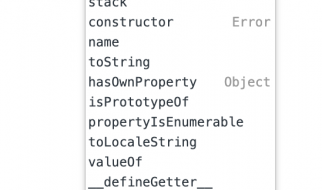
Self-discipline is crucial for achieving any goal. However, there is a limit to what you can accomplish just with willpower. Even the strongest-willed people run out of juice eventually.
That?s why the most successful people get external help to make sure they?re supported when they run out of willpower. In most sports, the accountability in the form of a trainer or a coach is a no-brainer. It?s the industry standard and everybody does it. If you were without a trainer you would be way behind.
It?s the same with most business executives. The ones that want to take their game to the next level hire a business or an executive coach.
Luckily nowadays there are great tools that will give you a similar level of accountability for just a fraction of the price of a professional trainer or coach. You can easily get accountability without having to pay thousands of dollars.
Let?s look at the best accountability tools on the market today.
1. StickK

StickK is one of the most popular accountability apps. It helps you set a goal and stay on track with a financial incentive. If you fail your goal you have to pay the price.
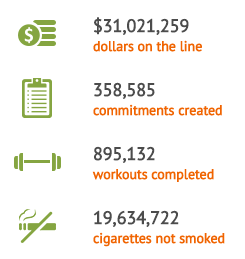
The stats that its users have achieved collectively are mindblowing.
Being a part of such a successful community alone is a form of accountability.
How it works
StickK offers a 4-step process to set your goal and accountability:

Everything starts by selecting and defining your goal. You can choose from a few popular goals or define your own.
If you want to start exercising, for example, you define how many times per week you will exercise, the length of the commitment, and the day of the week you have to submit a report.
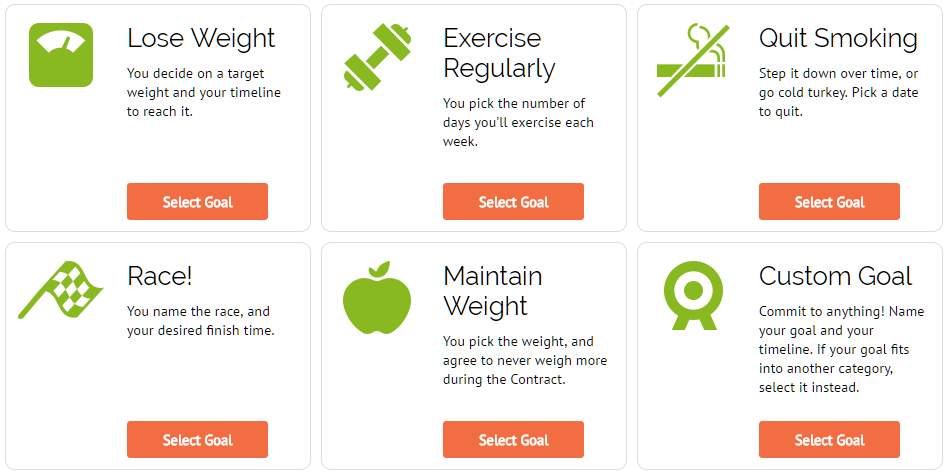

This is where you define what happens if you don?t meet your goal. Committing money is optional, though it?s the most common choice. For example, your commitment is to lose $50 if you don?t meet your exercise quota this week.
If you don?t complete the commitment and submit a successful report on StickK you will be charged $50 from the payment method that you defined (also in step #2 of the process.)
The great thing about StickK is that you can define what happens to the money you lose. You can send them to a friend, foe, charity, or an anti-charity. An anti-charity is a cause that you personally don?t like.
Making sure the money you lose goes to a good cause is very noble. However, if you want to get some extra accountability pick a foe or an anti-charity. Knowing that your money will go to a person or cause that you don?t like will push you to work extra hard to achieve your goal. Here is the list of the anti-charities that you can sign up for in stickK:
- Abortion: Americans United for Life
- Abortion: NARAL Pro-Choice America Foundation
- Environmental: Nature Conservancy
- Environmental: The national Center for Public Policy Research
- Gay Marriage: Gay & Lesbian Advocates and Defenders (GLAD)
- Gay Marriage: National Organization for Marriage
- Gun Control: Educational Fund to Stop Gun Violence
- Gun Control: NRA Foundation
- Political: American Crossroads (Super PAC supporting Republican Party)
- Political: House Majority PAC (supporting House Democrats)
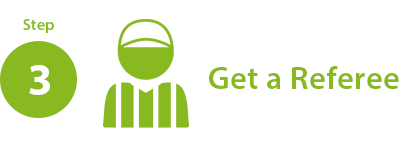
In this step, you can invite the person who will determine whether your report was genuine or not. It can be a friend, coach, or a family member. No matter who you choose, it should be someone who can tell whether you did the commitment or not. If the referee has no way to find out if you?re lying or not it defeats the whole purpose of the accountability.
You also have the option to skip this step and do the commitment ?on your honor.? So if you?re internally motivated enough and you only need a tool to track how you?re doing with the goal you don?t have to involve other people.
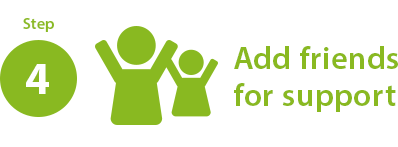
If you want to go one step further with your accountability you can invite more friends and family to hold you accountable or cheer you when you?re making progress. Sometimes staying accountable to just one person isn?t enough. The more people you involve in your process the bigger the sense of accountability is going to be.
StickK takes privacy seriously, so you are in control of who can see the goal you?re working on. You can share it only with the people that you want.
2. GoFuckingDoIt

GoFuckingDoIt is a simplified version of StickK. If you want to get a similar functionality but don?t want to bother with registering an account or setting up your goal, GoFuckingDoIt is for you.
How It Works
The goal setup process here takes less than a minute. You go through 6 quick steps and you?re ready to go:
- Write down your goal
- Set the deadline
- Set the price
- Set the supervisor?s email
- Set your own email
- Set the payment method

When you complete the process your supervisor will get an email asking them whether you succeeded at the goal or not. If your supervisor marks the goal as unsuccessful you will lose the money.
3. Beeminder

Beeminder is a reminder with a sting! Meaning if you don?t stay on track with your goal you pay money. The difference with StickK and GoFuckingDoIt is that you don?t need a referee to determine your success. Instead, Beeminder works by connecting to other apps that track your goals like Fitbit, RescueTime, Todoist, and many others.
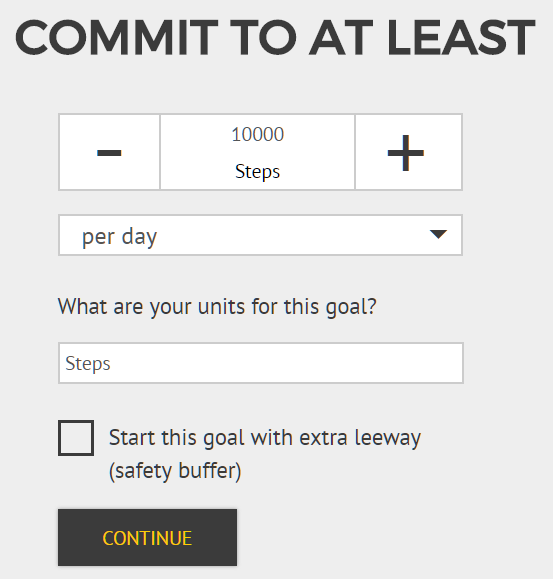
How it works
The setup process is similar ? pick your goal, set the deadline, and define your payment method.
Once you define the goal you have to set your pledge amount. When you fail once the pledge increases, so failing a second time gets more expensive.
However, Beeminder is not as harsh as it sounds. It gives you some leeway and time to get back on track after you fail. It uses a yellow brick road as a metaphor for you staying on target.
As you track your goal every day the data is logged on the graph. As long as the data points are within the yellow brick road it means you?re on your way to achieving the goal.
However, if you veer off the road the data point becomes red. Then you have until midnight to get back on track or you?ll get charged the pledge amount.
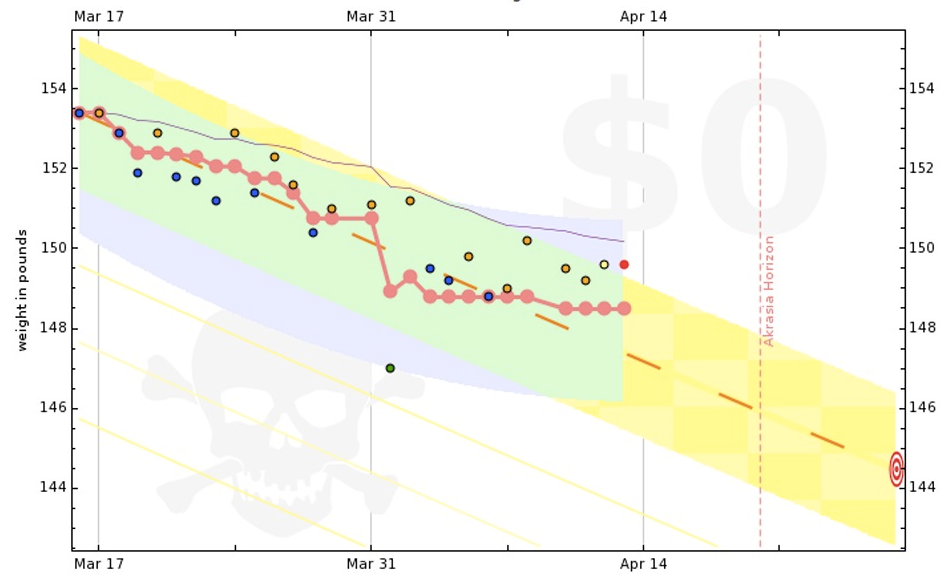
At any point in time, you can change your goal to be easier or harder and adjust the yellow brick road. It seems like this defeats the whole purpose of the accountability, but there is a catch ? any changes you make will take effect after 7 days. That way can?t cheat due to short-time weakness, but you can still adjust the goal long term.
4. Pact

Pact is a phone only app that lets you earn money from staying on track with your goals. Granted you?re not going to become a millionaire but you will be getting some extra cash by doing what?s good for you anyway.
How it works
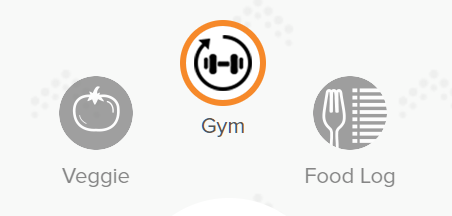
Because of the way Pact works you can only track 3 types of goals:
- Going to the Gym
- Eating Your Veggies
- Logging Your Food
To make sure you?re not cheating Pact tracks your data accurately. Say your goal is going to the gym. Pact uses the GPS data on your phone to figure out if you?re actually at the gym. The Pact team manually approves every gym location to make sure you?re not lying.
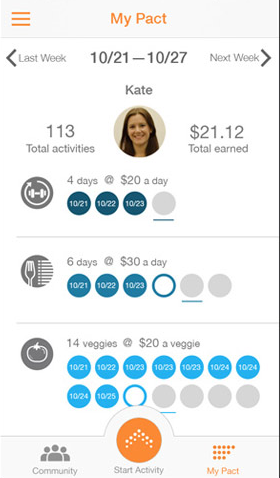
For Food Logging the app connects to MyFitnessPal to track your meals.
Similarly to Beeminder, you can change your pact but the changes will take effect next week. Even if you delete the account, the app gives you one week to reconsider and to make sure you?re not giving up in a moment of weakness.
Once you start a commitment there is no way to back down and if you fail you will pay the price. So make sure when you?re making the pact you?re a 100% committed to achieving it.
There is some leeway in the form of a medical emergency. So say you get injured and can?t go to the gym for a while, you can put your pact on hold so you don?t get charged unfairly.
5. Pavlok

The heart of Pavlok is a wristband that gives you electrical shocks when you?re doing something you?re not supposed to be doing. It?s a great way to break bad habits by giving negative reinforcement to your brain.

Say you want to stop smoking. Every time that you feel like lighting a cigarette you give yourself an electrical shock (zap) and train your brain that it?s a bad behavior.
The app has a few defined presets for the most common negative habits like snacking, nail biting, cravings, and hair pulling.
The app has a great habit tracker that logs your negative habits and gradually trains you to give them up.
How it works
There are 3 ways that you can trigger a zap:
- Manually by pressing the lightning bolt on the band.
- Automatically by setting up conditions in the app.
- Giving control to another person.
If the electrical shock is too negative for you, you can also use a simple beep or vibration as a reminder.
One of the best features of Pavlok is the Google Chrome extension. You can link it directly to your Pavlok and use it to give you feedback on your browsing habits. For example, make it zap you when you go to a website that you use for procrastination during work time. Or zap you when you open more than 5 tabs. You can also link Pavlok to RescueTime or Todoist and set up zaps or reminder based on the parameters from those apps.
6. Coach.me

Coach.me takes accountability to the next level with personal coaching. It?s very helpful to have friends, family, and apps supporting you with accountability, but nothing beats hiring a professional coach that is an expert on a specific topic.
The problem is that not a lot of people could afford to pay for a personal coach to help them on their goals. Coach.me changes all that by offering affordable online coaches that specialize in various self-improvement categories like exercise, diet, meditation, writing, productivity, and breaking addictions.

Since there are so many coaches online, coach.me helps you find the best one for you by ranking the coaches based on client feedback. In addition, there is a description and an introduction from every coach so you can decide if he or she is the right one for you.
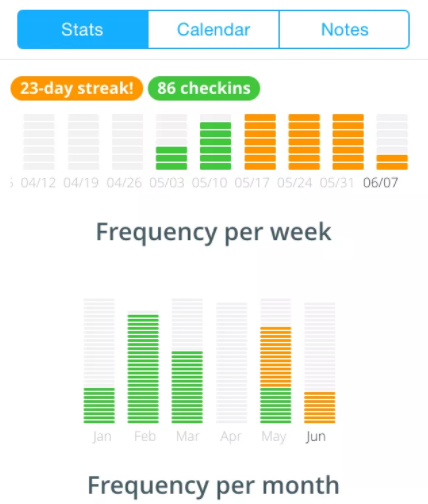
A coach will message you every day with reminders and helpful suggestions to keep you on track.
In addition to the coaching, the app has a great habit tracker that you can use to keep track of your progress. Once you pick a coach, he also has access to the statistics for your goal. He can review your progress and give you reminders and nudges.
The price for most coaches is $14.99 a week.
When we set a new goal we feel very enthusiastic and motivated, so setting accountability seems pointless in the moment. We feel on top of the world and confident that we can achieve the goal no matter what.
That initial motivation, however, is short lived. There are many pitfalls along the way like getting sick, a breakup, or losing your job. If you don?t have accountability supporting you through these challenges it?s more likely that you will give up the goal. So don?t wait until it gets hard, set it up now.
Originally published at georgehalachev.com on June 7, 2017.

